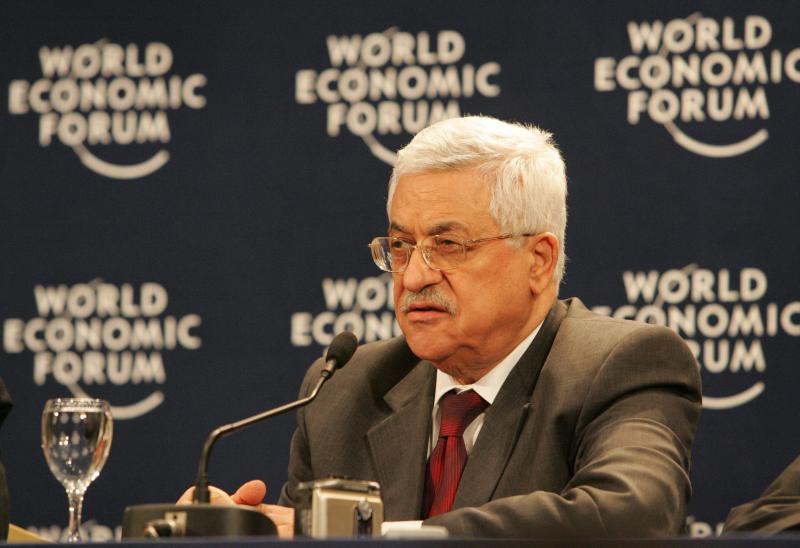
By Martin Bunton
It may be premature to completely write off the recent round of the US-sponsored Israeli-Palestinian peace process. The talks faltered earlier this month when Israel failed to release a batch of prisoners, part of the initial basis for holding the negotiations launched last July. The rapidly disintegrating diplomacy may yet be salvaged. But the three main actors have already made it known they will pursue their own initiatives.
They each may think that their actions will allow them to accumulate more leverage, maybe help position themselves in anticipation of a resumption of bilateral negotiations which, for over twenty years now, has been directed towards establishing a Palestinian state living peacefully alongside Israel. But it is also possible that the steps the parties take will instead deepen the despair of a two state framework ever coming to fruition.

Benjamin Netanyahu
The United States will focus their attention to other pressing issues, such as securing a deal on Iran’s nuclear program. Progress on this front may encourage, perhaps even empower, the Obama administration to resume Israeli-Palestinian negotiations later in its term. But the chances of their success will depend less on yet another intense round of shuttle diplomacy by US Secretary of State John Kerry, and more on whether a distracted Obama presidency will be prepared to pressure Israel to end its occupation. True, Obama enjoys the freedom of a second term presidency (unconcerned about the prospects of re-election). So far however he hasn’t appeared at all inclined to challenge Israeli prime minister Benjamin Netanyahu.
As for Israel, the Netanyahu government will take steps to make life even harder for Palestinians under occupation, and no doubt further entrench its settlement infrastructure in the West Bank, the territory on which Palestinians want to build their own state. Netanyahu, now one of the longest serving prime ministers in Israeli history, has provided very few indications that he is willing to enable the Palestinians to build a viable and contiguous state. He appears confident that the status quo is tenable, and that occupation and settlement of the West Bank can continue to violate international law without facing any serious repercussions. The more likely outcome of such complacency, however, is the irrevocable damage inflicted on the prospects of a two state solution and the harm done to Israel’s security, possibly subjecting it to a wide ranging international boycott movement.
Meanwhile, the Palestinian government, led by Mahmoud Abbas, will desperately strive to ensure that the breakdown of talks not lead to the collapse of his Palestinian Authority. Abbas may seek to use this opportunity to lessen the overall reliance on US sponsorship and achieve Palestinian rights in international bodies such as the UN and the International Court of Justice. This move may placate the growing number of Palestinians who until now have angrily dismissed Abbas’ participation in American-sponsored bilateral negotiations as doing little more than provide political cover to the on-going Israeli occupation, begun almost 50 years ago. But the majority of Palestinians will continue to disparage of how the pursuit of their national project has been paralysed by the weakness and corruption of their leaders and the absence of a unified government and coherent strategy.

Mahmoud Abbas
Though no side wants to be blamed for the collapse of negotiations, it is easy to see how a cycle of action and recrimination could scupper all attempts to revitalize them. More to the point, however, is to ask whether the steps taken will end up burying the very prospects of a two-states solution to the century long conflict which the negotiations are supposed to achieve.
Martin Bunton is an Associate Professor in the History Department of the University of Victoria and author of the recently published The Palestinian-Israeli Conflict: A Very Short Introduction (Oxford University Press, 2013).
The Very Short Introductions (VSI) series combines a small format with authoritative analysis and big ideas for hundreds of topic areas. Written by our expert authors, these books can change the way you think about the things that interest you and are the perfect introduction to subjects you previously knew nothing about. Grow your knowledge with OUPblog and the VSI series every Friday, subscribe to Very Short Introductions articles on the OUPblog via email or RSS, and like Very Short Introductions on Facebook.
Subscribe to the OUPblog via email or RSS.
Subscribe to only current affairs articles on the OUPblog via email or RSS.
Image credits: (1) Benjamin Netanyahu. Public domain via Wikimedia Commons; (2) Mahmoud Abbas. By World Economic Forum from Cologny, Switzerland (AbuMazem). CC-BY-SA-2.0 via Wikimedia Commons
The post Kerry On? What does the future hold for the Israeli-Palestinian peace process? appeared first on OUPblog.

We were all excited to hear that Michael Oren, an OUP author, was appointed to be Israel’s Ambassador to the United States. To celebrate we are posting two tasty tidbits for you. The first is an anecdote of Niko Pfund’s, OUP’s academic and trade Publisher, about Oren’s book Six Days of War. The second is a short excerpt from the book about the effect of the Six Day War on the Middle East. Enjoy!
Niko Pfund
Upon hearing the news of Michael Oren’s appointment to be Israel’s Ambassador to the United States I was immediately reminded of the following episode that happened one day on my way to lunch with the editor of Oren’s Six Days of War, Peter Ginna. We were walking down 35th Street together. I’d been reading the book and was finding it just an excellent read, and so was talking to Peter about it. Specifically, we were discussing the debate in the Israeli government as to whether to wait for the attack that they presumed was coming and thus be at a disadvantage militarily (but then be viewed as the victim of aggression in the court of world opinion) or whether to preemptively attack and gain the upper hand militarily (while likely being vilified in some circles as the aggressor).
Israel obviously opted for the latter and as a result destroyed a large part of the Egyptian air force before it ever left the ground.
Peter and I were discussing the ways in which the Egyptian military commanders, when asked by Nasser how things were going, responded very positively, even triumphantly, that they were making excellent progress and expected to report a stunning victory shortly, in a desperate attempt to buy themselves time, since they knew that their air force had been crushed and that Nasser’s wrath would be fearsome as a result.
Just as we were talking about their dilemma, I was suddenly confronted by a man in a FedEx uniform, angrily jabbing his fingers at me and saying, in heavily accented English, “Egyptians are not a stupid people, my friend, no, no! Egyptians, we are not a stupid people!!”
Naturally, I was taken aback but also dismayed that our conversation was being misinterpreted and so tried to calm the man down and explain that we were in no way mocking the Egyptian military, much less Egyptians on the whole, but simply marveling that they were in such dire straits that they felt their only recourse was to lie outright to the president as a means of buying some time. We stood there on the street talking for a
bit, in increasingly temperate and friendly tones, and by the end of the conversation we had agreed that:
–Egyptians are not a stupid people.
–Egyptians are in fact a wonderful people.
–America is a terrific place–yes, a land of opportunity–even with its
challenges and problems it poses for immigrants.
–We both love New York City.
After a hearty handshake, much smiling, and patting on the back, we went our own separate ways.
Excerpt From Six Days of War
Even from the perspective of thirty-five years, the answer to the question, “Did six days of war truly change the Middle East?” remains equivocal. Events in the region that previously converged only toward conflict could also, post-1967, surge in the direction of peace. Diplomatic breakthroughs once deemed inconceivable became almost commonplace in the following years, facilitated by special mediators and leaders of both courage and vision. Violence, nevertheless, continued to plague the lives of millions throughout the Middle East, and to threaten to pitch not only the region, but the entire world, into war.
Along with opportunities for peace, the Six-Day or June War opened the door to even deadlier conflagrations. Basic truths persisted: for all its military conquests, Israel was still incapable of imposing the peace it craved. Though roundly defeated, the Arabs could still mount a formidable military campaign. The status of territories could be negotiated but the essential issues—Israel’s right to exist, the demand for Palestinian repatriation and statehood—remained. If the war was indeed a storm that altered the region’s landscape, it also exposed the underlying nature of the Arab-Israel conflict—its bedrock. The modern Middle East created in 1967 was therefore a hybrid: a region of incipient promise but also of imminent dangers, a mixture of old contexts and new.
At the time of this writing, the Middle East is once more in the grip of turmoil. The Palestinians have taken up arms, Israel has retaliated, and the peace process has run aground. Familiar patterns of terror and counterstrike, incursion and retribution, have resurfaced. Nor has the bloodshed been confined to the Arab-Israeli arena, but has burst beyond in the form of massive terrorist attacks against the United States and America’s reprisals against Islamic extremists.
Today, Arab demonstrators, many bearing posters of Nasser, are demanding a showdown with the West and with Israel. The Israelis wait, meanwhile, and weigh the risks of preemption. The war that never quite ended for statesmen, soldiers, and historians, is liable to erupt again.






